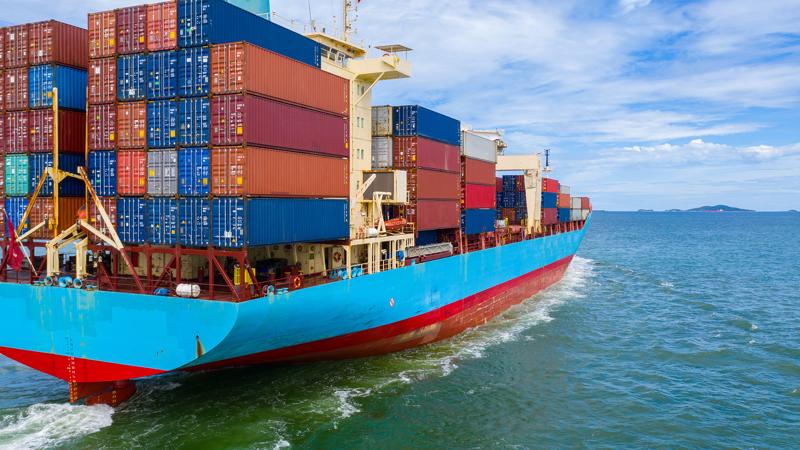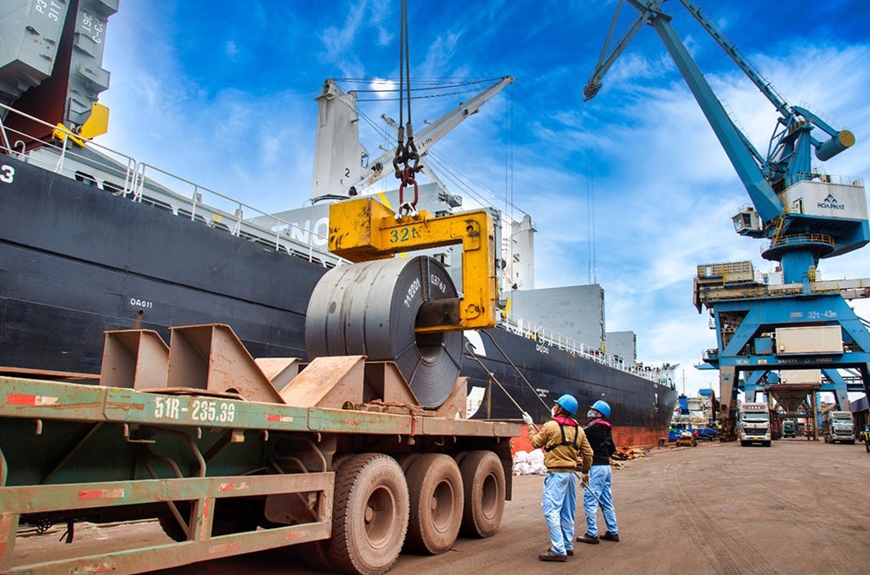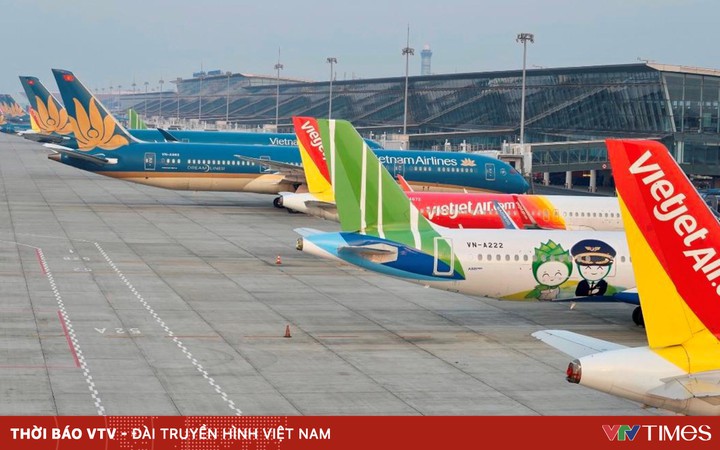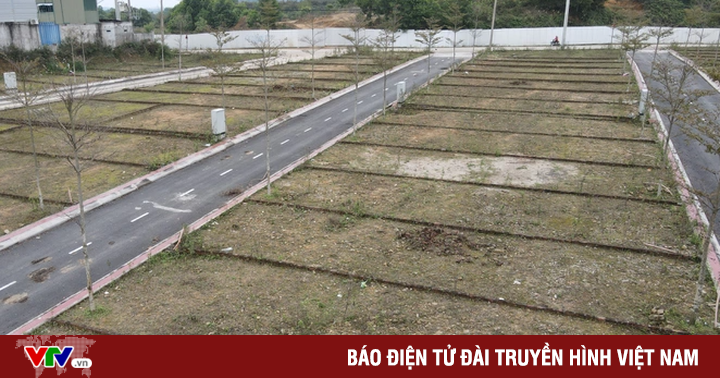Logistics costs “challenging” import and export

Over the past 2 years, the impact of the Covid-19 epidemic has pushed up sea freight rates, increasing 4-6 times and so far there has been no sign of “cooling down”.
2022 is the year when export activities are expected to continue to prosper thanks to the recovery of the world economy and commitments on preferential tariffs that Vietnam’s Free Trade Agreements have joined. more fully implemented. Along with that, the wave of investment shift to restructure the supply chain of foreign corporations with large production scale and wide customer network will be a new driving force for import and export activities.
In Vietnam, the economic recovery package with supportive policies of the Government (including taxes and fees) is expected to help the business community, especially those industries heavily affected by the COVID-19 epidemic. -19 the past time quickly recovered.
However, according to some experts, import and export activities, especially Vietnam’s exports, will continue to face the risk of supply chain disruption due to trade tensions, geopolitics. de-escalation; The price of imported goods and raw materials, which are inputs for production, continued to rise, putting great pressure on production and business activities. Along with that, geopolitical tensions and rising oil prices around the world cause transportation and logistics costs to increase “gallopingly”, making import and export costs increase, reducing the competitive advantage of Vietnamese goods. Male.
Logistics costs in Vietnam are equivalent to about 16.8% of GDP
Tran Thanh Hai, Deputy Director of the Import-Export Department (Ministry of Industry and Trade), said that in the past 2 years, the impact of the COVID-19 epidemic has pushed up sea freight rates, increasing 4-6 times and up to now. There is no sign of “cooling down”.
According to calculations by the Vietnam Logistics Association (VLA), in 2021 logistics costs will still account for about 16.8% of the value of Vietnamese goods while this cost in the world is currently only about 10.6%.
Mr. Nguyen Tuong, Senior Advisor of the Vietnam Association of Logistics Service Enterprises, said that logistics costs include goods storage, packaging, packaging, warehousing, goods rotation, customs clearance.. . accounts for a large proportion of the total cost of products, so this cost increases, leading to higher prices of goods. And this is not a small “challenge” for Vietnamese businesses and goods at the moment.
According to the Vietnam Association of Seafood Exporters and Producers (VASEP), this year’s sea freight rates have set a new record higher than the “peak” of 2021.
Specifically, freight rates to Thailand (Bangkok port, Laem Chabang) range from 1,600-2,500 USD/container; freight rates to the Philippines (Davao, Cebu, General Santos) range from 4,000-5,300 USD/container; going to the US West Coast ports ranges from 12,000-14,000 USD/container (depending on the carrier); going to the East Coast of the US such as (Baltimore, Miami, New Orleans, Houston…) fluctuates at a high level from 19,000-22,000 USD/container…
Along with sea freight, VASEP said that by 2022, the container shipping fee will continue to be adjusted by many shipping lines to increase by 20%, although before that the price was very high, increasing several times compared to the time. before translation.
While sea freight and container rental costs are “galloping”, according to Mr. Nguyen Tuong, the collection of fees for using works, infrastructure, service works and public utilities in the border gate area. Seaports in Ho Chi Minh City (collectively referred to as seaport infrastructure fees) from April 1, 2022, have made businesses even more difficult.

Logistics enterprises need to promote business cooperation and investment in the industry to create an increasingly efficient and professional supply chain of goods and services.
Procedures that make businesses “short of breath”
Mr. Dinh Huu Thanh, Chairman and General Director of Bee Logistic Vietnam said that: Currently, a number of policies and procedures on import and export are causing businesses to “short of breath”.
According to Mr. Thanh, for example, exporters are having problems with customs regulations that allow transported goods to be repackaged but not allowed to be installed; the quantity of input goods must match the output, etc. These regulations are preventing enterprises from doing logistics with third parties.
Therefore, Bee Logistics Vietnam proposes to improve regulations at bonded warehouses or customs management areas to allow logistics enterprises to install, process as well as pack and label goods… because These are the basic activities that logistics enterprises in the world have been doing for a long time.
Bee logistics also recommends that businesses need more information and guidance in accessing logistics center investment projects in provinces and cities. The useful information will be a premise for businesses to focus their investment resources and develop logistics centers in Vietnam.
With the same opinion, Mr. Jonathan Hanh Nguyen, Chairman of the Board of Members of the Inter-Pacific Group (IPPG) suggested: In order to reduce costs for businesses, it is necessary to continue to strengthen the simplification and transparency of procedures. customs to reduce costs and increase predictability for businesses. In particular, it is necessary to quickly build and use systems for electronic data exchange between enterprises, customs and related agencies.
Regarding logistics infrastructure investment, a representative of the Department of Transport (Ministry of Transport) said that businesses need to perfect their organizational model, focusing on connecting service chains to meet the needs of the market. improve the efficiency of logistics service business by mobilizing social resources (including financial resources) to invest in building infrastructure, warehouses, logistics centers…
According to Mr. Nguyen Tuong, the reality shows that, in addition to the objective reasons from the world situation, the subjective cause is that most of the logistics enterprises in Vietnam are small and medium-sized enterprises, operating in a lack of linkages and infrastructure. logistics infrastructure is not synchronized, there is no high connection between types of transport, forwarding, etc., causing logistics costs to increase in the past time.
Therefore, in order to reduce the pressure on logistics costs, Mr. Nguyen Tuong said that logistics enterprises need to promote business cooperation and investment in the industry to create an increasingly efficient supply chain of goods and services. efficient and professional.
At the same time, logistics enterprises must apply all measures to reduce costs by changing operating methods, changing between transportation modes so that it is reasonable as well as strongly developing Vietnam’s shipping fleet in the future. . In addition, to reduce costs, logistics enterprises also need to improve service quality; accelerating digital transformation as well as reorganizing the organization to be leaner and more efficient.
The “World Logistics Passport” initiative
In order to contribute to logistics enterprises to reduce costs, Ms. Nguyen Minh Phuong, Head of West Asia-Africa Cooperation Department, Asia-Africa Market Department (Ministry of Industry and Trade), said that the Ministry of Industry and Trade coordinated with the morning. The “World Logistics Passport” (WLP) initiative organized the World Logistics Passport Initiative Forum and the possibility of enhancing cooperation between Vietnam and the United Arab Emirates (UAE) in the field of logistics. on 20/4.
UAE is an important partner of Vietnam in the Middle East region. Through the UAE, Vietnam’s export goods have the opportunity to reach many countries in the region. The effective cooperation with the UAE in the field of logistics will contribute to promoting trade exchanges between Vietnam and the Middle East and Africa.
Products and goods of Vietnamese enterprises when being issued a passport by the UAE are all facilitated and supported in terms of customs clearance, air tax exemption, reduction of inspection time, and quick and free loading on means of transport. costs, reducing storage times by up to 48 hours, cargo can be cleared before arrival at the port, which is expected to save time and operating costs by 40%.
Currently, some ports of the UAE are exempt from taxes and fees for goods with logistics passports. Goods passing through the Dubai Silk Road will save money on storage; can move goods smoothly from the place of origin to the destination.
With the above advantages, Dubai Customs is expecting goods traded from Vietnam to new markets to increase from 0.5% to 27%.
at Blogtuan.info – Source: danviet.vn – Read the original article here



